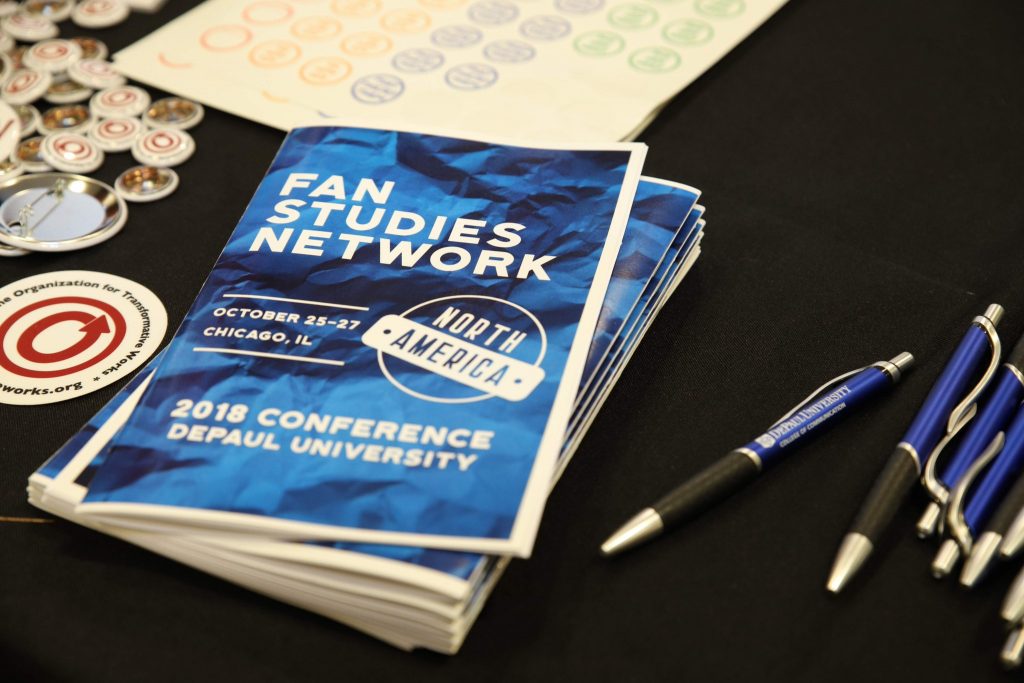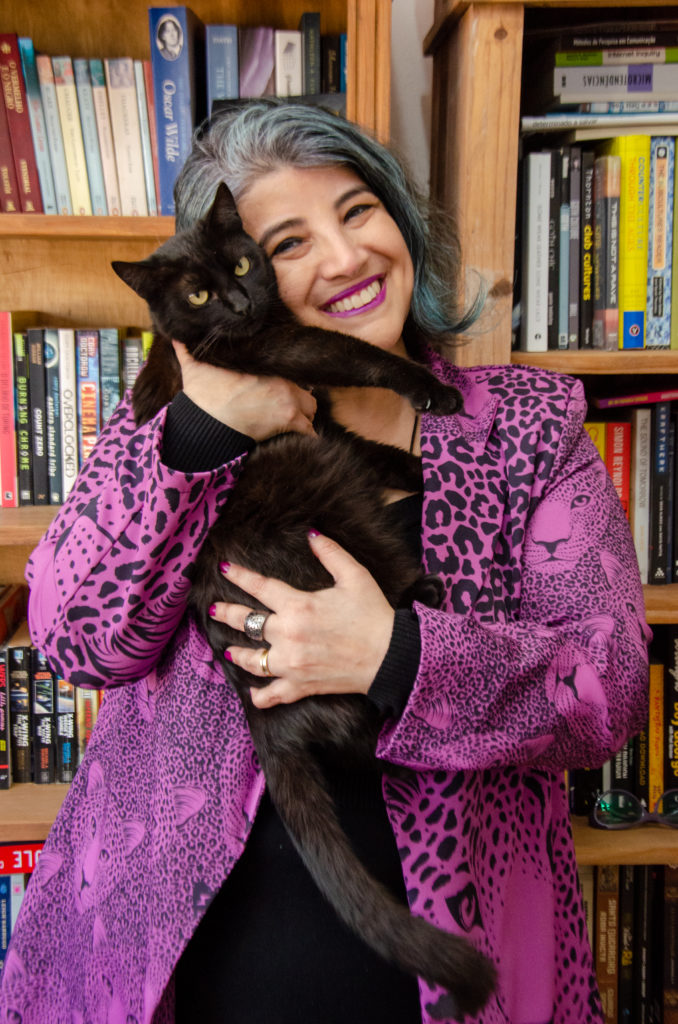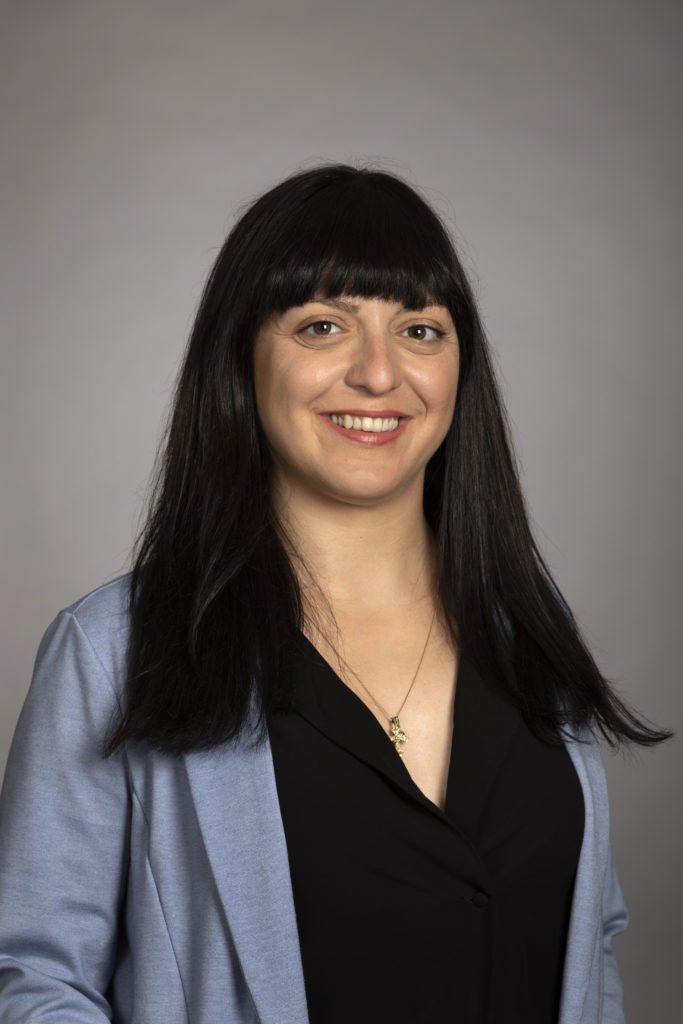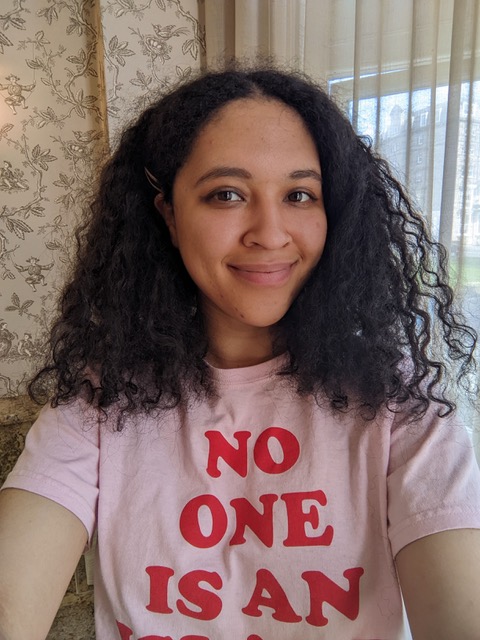Fan Studies Network North America (FSNNA) is an annual conference for fan scholars, scholar fans, and everyone in between. We seek to create a supportive, welcoming community for developing and sharing research in the interdisciplinary field of fan studies.
Inspired by our UK-based colleagues in the original Fan Studies Network, the first FSNNA conference was held in October 2018 at DePaul University in Chicago.
Since the Covid-19 pandemic, we have been holding our conferences online, using a range of platforms from Discord to Zoom to Gather to continue our mission of creating an accessible venue for fan studies scholars from around the world to share their work.

Organizing Committee

Adriana Amaral is Professor of Communication and Media Studies at Universidade Paulista (São Paulo, Brazil) and a Researcher at the National Council for Scientific and Technological Development (CNPq), a foundation linked to the Ministry of Science and Technology (MCT) that supports Brazilian research. She works at the intersection of fan studies, music studies, subculture studies, digital culture, digital methods and creative industries studies. She has published articles in journals such as Media and Communication, Participations, and IASPM Journal, book chapters in edited volumes such as Channel Power (Detlef Diederichsen and Arno Raffeiner, eds., Spector Books, 2022), Brazilian Youth: Global Trends and Local Perspectives (Claudia Pereira, ed., Routledge, 2020), and also books and papers published in Brazilian Portuguese.
She is a Key Regional Leader for Latin America at the Tik Tok Cultures Research Network and part of the RISE 2020 Social Media Analytics joint project. Her current research projects examine the relations and controversies between fans, pop culture influencers/creators and digital platforms such as Tik Tok, Spotify and Disney + in the Brazilian scene. She also directs CULTPOP – Research Laboratory in Pop Culture, Communication and Technologies, a research group developing fan- and industry-oriented approaches to the study of pop cultures in digital media.

Benjamin WOO Chun How (he/him/他) is Associate Professor of Communication and Media Studies at Carleton University (Ottawa, Canada). Working at the intersection of fan studies, comics studies, and media-industries studies, Ben is the author of Getting a Life: The Social Worlds of Geek Culture, co-author (with Bart Beaty) of The Greatest Comic Book of All Time: Symbolic Capital and the Field of American Comic Books, co-editor (with Jamie Rennie and Stuart Poyntz) of Scene Thinking: Cultural Studies from the Scenes Perspective, and co-editor (with Jeremy Stoll) of The Comics World: Comics, Graphic Novels, and Their Publics, among other works. With Miranda Campbell, he edits the new series Cultural Production and Everyday Life with Concordia University Press. His current research projects examine the fan–industry interface at comic cons and memories of comic-book reading across the life course.
He also directs the Research on Comics, Con Events, and Transmedia Laboratory, a research group developing fan- and industry-oriented approaches to the study of comic books and graphic novels in and across contemporary media.
Effie Sapuridis is a Media Studies PhD candidate in the Faculty of Information and Media Studies at Western University. She holds a Master’s degree in English literature from the University of Massachusetts Boston. Her dissertation “Networked (Re)Storying on New Media Platforms” explores digital storytelling by fans on TikTok. In particular, this project is interested in restorying of identity (especially via metadata) and the negotiated use of the creator’s physical body. Her work has been published in Transformative Works and Cultures (TWC) and Humanities. Additionally, Effie is the Outreach and Communications Editor for TWC, the Reviews Editor for the Journal of Fandom Studies, and the founder of the young adult literary magazine, Fterota Logia.

Jenessa Williams (she/her) is a Media & Communications PhD candidate at the University of Leeds, UK. In 2023, she will be defending her thesis on #MeToo and Music Fandom, exploring the way in which indie-alternative and hip-hop fan communities respond to allegations of celebrity sexual abuse.
Her wider research interests explore race, gender and feminist representation in music fandom and music journalism, as well as online community activism amidst the “culture wars.” Jenessa also works as a music journalist, writing regularly for the likes of the Guardian, NME, The Forty-Five, DIY, Alternative Press and Music Week.


Jonathan A. Rose is an assistant professor for English Cultural and Media Studies at the University of Passau, Germany. In his PhD dissertation, he examined transgender representation in fanfiction and its cultural contexts. Guided by an interest in all kinds of marginal(ized) figures like trans people and fat people, aliens, zombies and fungi, his research lies at the intersections of literary, cultural, fan, media, and trans(gender) studies, with a focus on genders and sexualities, adaptation and related phenomena, as well as fandom and fanfiction. Recent publications include “‘My Male Skin’: (Self-)Narratives of Transmasculinity in Fanfiction” (European Journal for the Study of English, 2020), “The Last of Us: Fungi, EcoGothic Zombies and Posthuman Hybrids in The Girl with All the Gifts” (Journal for the Study of British Cultures, 2020), and “Making the Mother: Pro/Creation and Female Agency in the Alien Series” (with Florian Zitzelsberger, Oxford University Press, forthcoming
2023).

Maria K. Alberto is a PhD candidate in English at the University of Utah. Her work has been published in Humanities, Transformative Works and Cultures, and Mythlore, as well as edited collections including A Fan Studies Primer, Fandom The Next Generation, Roleplaying Games in the Digital Age, and New Frontiers for Popular Romance. She is also co-editing a collection of essays focused on the Chinese drama The Untamed with Dr. Yue Wang.
At this very moment, she is probably working on her dissertation regarding canon(s) or playing D&D. Either way, coffee is involved.
Past members of the organizing committee include Paul Booth, Kristina Busse, Lori Morimoto, EJ Nielsen, Sarah Sinwell, Louisa Stein, Lesley Willard, and Jacinta Yanders.

